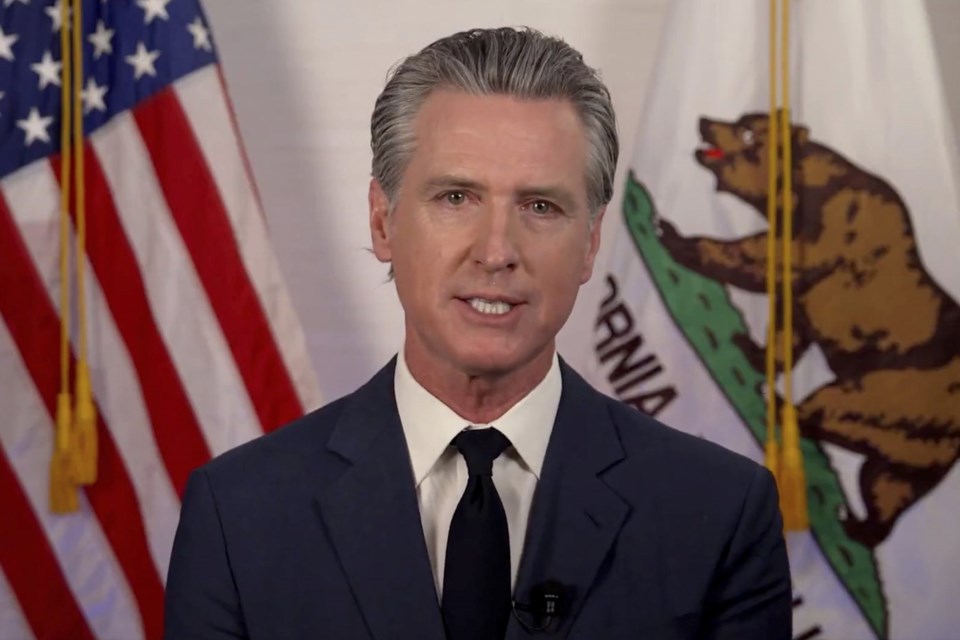SACRAMENTO, Calif. (AP) — Gov. Gavin Newsom signed into law an overhaul of California's landmark environmental protection rules that he says is essential to address the state’s critical housing shortage and long-running homeless crisis.
The Democratic governor widely seen as a potential 2028 presidential candidate called the two-bill package a historic reshaping of environmental rules that, while initially well intentioned, too often resulted in tangles of litigation and costly delays that strangled much-needed development.
Newsom said the bills, which he signed Monday night, represent the most consequential housing reform in recent California history.
“We have too much demand chasing too little supply,” Newsom said at a news conference. “So many of the challenges that ail us can be connected back to this issue.”
Once known for stratospheric growth, it is possible the nation's most populous state could lose a handful of U.S. House seats in the 2030 census because population has been shifting to states like Texas and Florida, where the cost of living is more affordable.
And with about 18 months left in office, the term-limited Newsom is also looking to bolster his legacy by attempting to tackle one of the state's most intractable problems — soaring rents and home prices that are out of reach for many middle-class families. When first seeking the governorship, Newsom said he wanted to end California's housing shortage by building millions of new homes, a goal the state appears unlikely to reach by the time he leaves office in January 2027.
It was difficult to predict how much activity would follow.
“I think the increase will be incremental rather than a boom,” said planning expert Bill Fulton, former mayor in Ventura and director of planning and economic development in San Diego. He noted in an email that many other factors come into play, including financing from lenders, the cost of construction materials and the availability of workers.
With the race to succeed him underway, Republicans have faulted Newsom and the Legislature's dominant Democrats for doing little to control costs for everything from utilities to housing.
With a dire housing shortage, Newsom said nothing less than trust in government was on the line — the ability to produce results. It's about “the reputation of the state of California,” he said.
Newsom had threatened to reject the state budget passed last Friday unless lawmakers overhauled the California Environmental Quality Act, or CEQA, a 1970s law that requires strict examination of any new development for its impact on the environment.
The governor and housing advocates maintain that CEQA put up bureaucratic roadblocks that have made it increasingly difficult to build housing in the state of 39 million.
Lawmakers passed the transformative measure despite opposition from environmental groups.
Jakob Evans, a senior policy strategist for Sierra Club California, said in a statement that “these half-baked bills written behind closed doors will have destructive consequences for environmental justice communities and endangered species across California.”
Newsom called it a step toward solving the state's housing affordability problem.
“This was too urgent, too important, to allow the process to unfold as it has for the last generation,” he said after signing the bill.
Earlier this year, Newsom waived some CEQA rules for victims of wildfires in Southern California, creating an opening for the state to reexamine the law that critics say hampers development and drives up building costs.
The state budget passed last week pares back a number of progressive priorities, including a landmark health care expansion for low-income adult immigrants without legal status, to close a $12 billion deficit.
___
Blood and Weber reported from Los Angeles.
Michael R. Blood And Christopher Weber, The Associated Press



